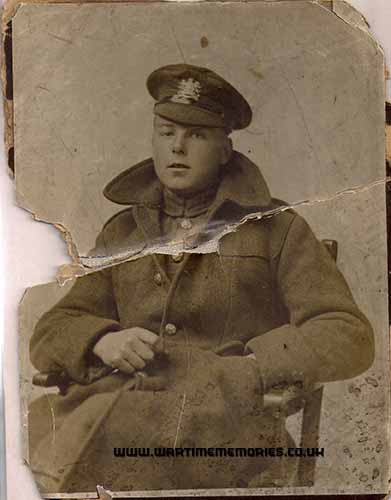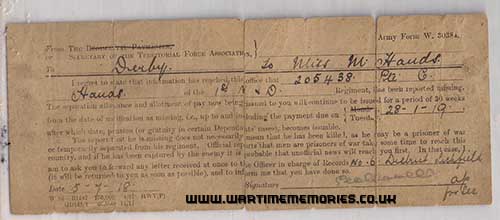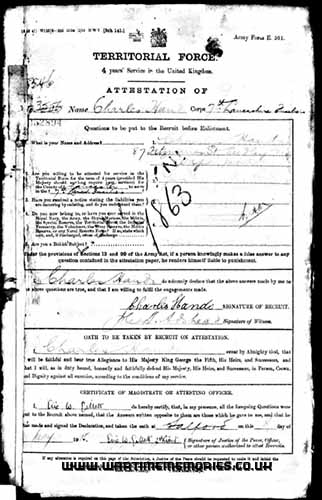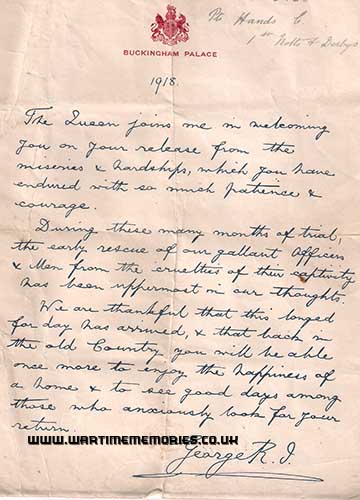Additions will be checked before being published on the website and where possible will be forwarded to the person who submitted the original entries. Your contact details will not be forwarded, but they can send a reply via this messaging system.
please scroll down to send a message
Pte. Charles Eugene Hands
British Army 7th Btn. Lancashire Fusiliers
from:Salford, Lancs
My father’s brother, Willie, had enlisted in the Army at the outbreak of the First World War in l914, when he was 18. Within a year he would be killed. (he is buried at Bailleul). It is significant that my father, Charles Hands, only once in his life ever mentioned to me his experiences in the war, possibly because, coming as he did from a loving, united and peaceful family, these must have had a devastating effect on him and were too painful to recall.
The minimum age for joining the armed forces was 18 so that when, at the Cross Lane, Salford Recruiting Agency, the Recruiting Officer learned that he was only 16 he told my father to walk once round his desk. “Now how old are you?â€, he asked. “19â€, replied my father. “Very good,†said the officer, “sign hereâ€. It was May 1915 and my father joined the 7th Lancashire Fusiliers. He was to remain in England, for at least some of the time on coastal duty in Scarborough, until March 1918 when he embarked for Ypres where his regiment was to meet up with another - the 8th Lancs. Fusiliers?..
Coming to a fork in the road, my father was sent one way, while a comrade was sent another, to find the Company in question. My father was successful in meeting up with the company and returned to his own with its commanding officer. To his horror he found that his own company had been attacked and wiped out. The scene that met his eyes must have been imprinted on his mind for the rest of his life: men and horses, dead or dying, were strewn everywhere along the road and in the ditches. The noise was hellish. I understood that none had survived.
Shortly after this, as they were trying to take a hill, the second company was surrounded by Germans. “Tommyâ€, they shouted, “drop your weapons, you are surroundedâ€. “I shall always be grateful to those Germansâ€, said my father, “they could have shot usâ€. As it was, they probably saved his life because he was transported to Kassel and put into a POW camp where he spent the next seven months, up to the end of the war. Army Form W. 3038A reporting my father missing was sent to his sister Madaleine on 5 July 1918.
It was in Kassel that my father lost his fussiness over food. Hunger was extreme both inside and outside the camp – the Germans were starving, too, and German children came to the wire fences to beg for food. There were occasional food parcels distributed by the international charities, also containing cigarettes and gloves and socks hand-knitted by wives, mothers and sisters back in England. The prisoners would swap and barter these precious offerings. My father was so hungry on one occasion that he offered to pay a comrade 25 shillings in War Bonds - to be delivered after the war - for eight biscuits! Twenty-five shillings was more than a working-man’s weekly wage in those days. “How do I know I’ll ever see the money?†the chap asked. “You have my promiseâ€, said my father. True to his word and much to his mother’s annoyance, my father sent the War bonds off to his comrade as soon as he got back home after the war. “After allâ€, he reasoned, “the chap trusted me and those eight biscuits at the time represented a banquetâ€.



